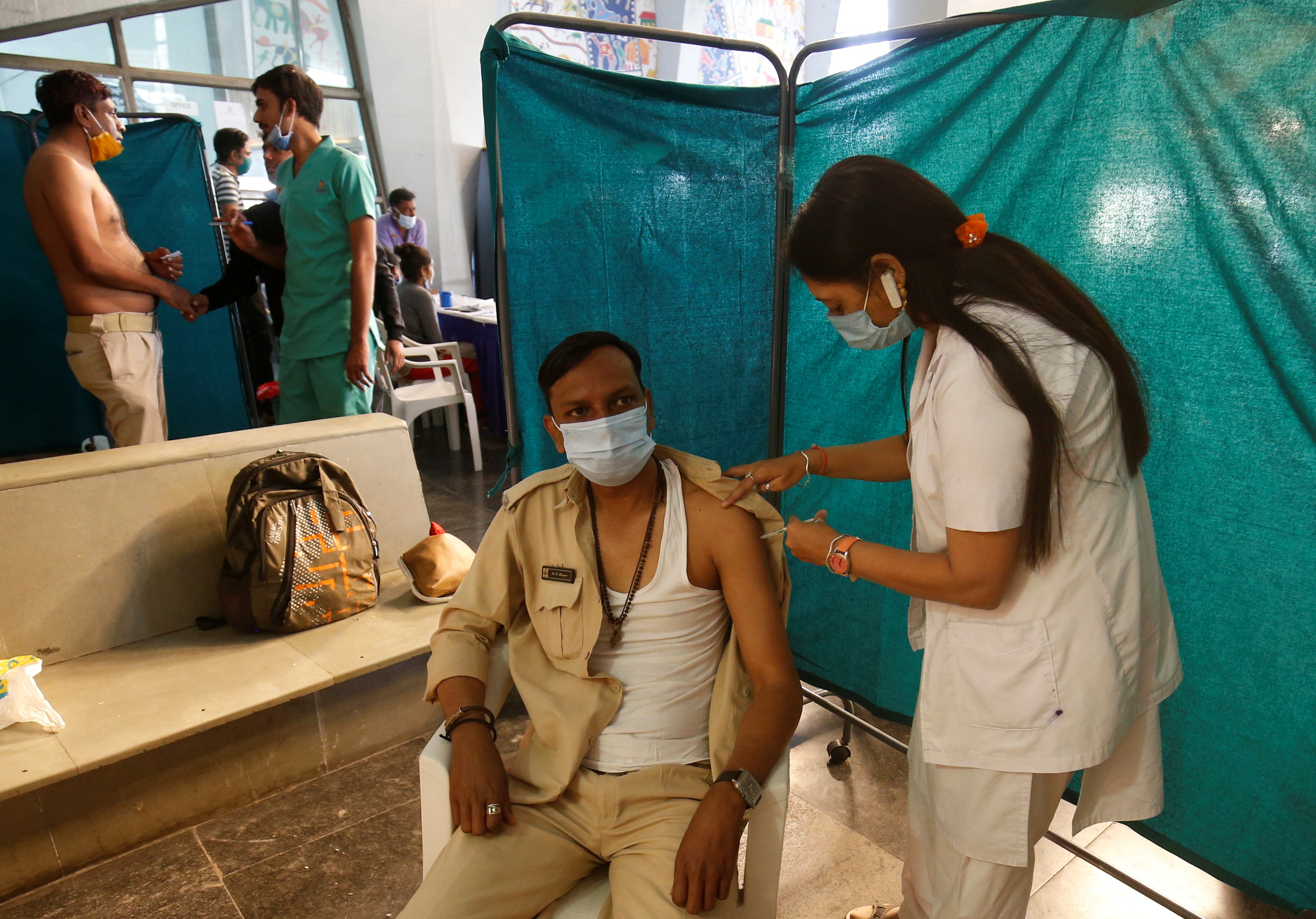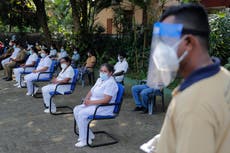India suggests 300 million may have been infected with coronavirus amid signs of ‘herd immunity’
India has second highest number of cases of coronavirus in the world

India’s latest survey says that close to 300 million people across the country may have already been infected with Covid-19 while there are signs of herd immunities in some cities including the national capital, Delhi.
The report of a serosurvey, which checks the spread of disease in a population, was released on Thursday and revealed that more than 21 per cent of the billion-plus population of India has been exposed to Covid-19, which is at least one in every five Indians over 18 years of age.
The survey conducted over December and January was carried out in the same 700 villages/wards, and 70 districts from 21 states which were selected during the first and second round of serosurveys. It covered about 35,700 people.
According to the latest survey, in urban slums the exposure of the population to coronavirus was 31.7 per cent while it was 26.2 per cent in non-slum urban areas and 19.1 per cent in rural areas.
It highlights that at least 25 per cent of children in India (aged between 10 and 17) have already been exposed to the virus while this was about 22.1 per cent for females and 20.3 per cent for males.
The government emphasised that this means a large population of the country still remains vulnerable to the pandemic and thus vaccines are necessary. It warned against complacency and reiterated the need for following preventive measures like masks, social distancing and hand hygiene.
While, according to local news reports, a separate survey in Delhi says that suggested over 50 per cent have developed antibodies against the coronavirus which means it is inching towards achieving herd immunity.
India’s vaccine programme is being touted as the world’s biggest coronavirus vaccination programme with an aim to vaccinate at least 300 million people by August 2021. The vaccination programme started last month with a focus on healthcare workers and, so far, over4.5 million doses have been administered.
According to the survey, the exposure of virus among the health workers was about 25.7 per cent.
Since the start of the pandemic, India has recorded 10.8 million cases of Covid-19, with over 154,000 deaths.
India’s vaccination programme involves two vaccines – one of Oxford University-AstraZeneca’s while another has been developed by BharatBiotech and the state-run Indian Council of Medical Research.
Meanwhile, the proposal for emergency authorisation of Pfizer-BioNTech‘svaccine was withdrawn by the company.
Join our commenting forum
Join thought-provoking conversations, follow other Independent readers and see their replies
Comments


Bookmark popover
Removed from bookmarks